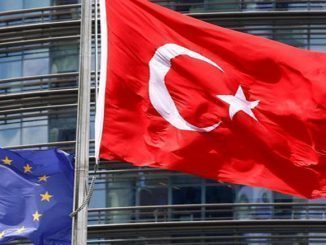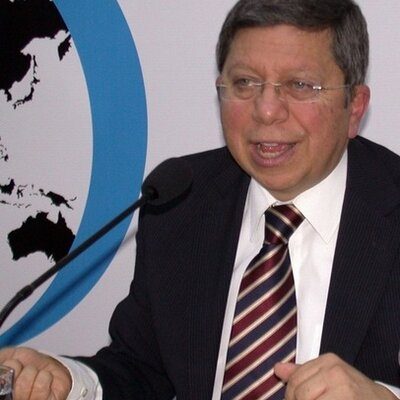
By: Yasin Aktay*
A new era has evolved on the crisis in Syria, which is now in its fifth year, with the Jarabulus operation and involves the world’s most important actors. While the demographic transformation tried to be formed on Syrian territory with the teeter-totter between the Democratic Union Party (PYD) and Daesh disregarding the will of the Syrian public, the people of Syria and Turkey alone were paying the price for the grave tragedy that emerged. Turkey’s new attempt at the Syria problem from Jarabulus is, before anything, a declaration that this situation can no longer go on this way. Since it is a member country, it has significance in terms of ensuring NATO’s security.
Such that, after almost three years, NATO no longer had a physical border with the Daesh terrorist organization. Even though NATO borders continued to perceive threats from regions such as Ayn al-Arab (Kobani) and Afrin – which are under the control of terrorist organizations – it should be noticed that it at least cleared its borders from Daesh.
Following the Justice and Development Party (AK Party) Congress that took place on May 22, Prime Minister Binali Yıldırım had said, “We are going to gain more friends and minimize enemies.” This was perceived as the signal of a strong transformation in foreign policy. The 65th government of the Republic of Turkey, chaired by Yıldırım, really did take major steps under the leadership of President Recep Tayyip Erdoğan. The long continuing normalization talks with Israel reached a conclusion and the soured ties with Russia after the jet downing crisis were restored.
In one aspect, July 15 was an extremely harsh step that was taken against Turkey’s recent foreign policy perspective, which has taken on a multidimensional state. Preventing the July 15 coup attempt, which was aimed at keeping Turkey outside of the developments in crisis areas like Syria and Iraq – that particularly threaten its security – and at destroying its material capacity and political-social power in the region, also expanded the sphere of influence of this strong dynamic in Turkey’s foreign policy. The operation in Jarabulus should be read in this context. Turkey’s starting to normalize relations with Russia and further expanding its channels of dialogue with Iran on regional issues, have, without a doubt, been major factors in the success of the Jarabulus operation.
However, the real big factor behind this success has been the Turkish Armed Forces (TSK), which has been further strengthened by clearing the bile within the TSK post-July 15, and the determination of a powerful government that was defended by its own people against the July 15 coup attempt – which without a doubt has international connections.
As a result, the Jarabulus operation has strengthened the hands of both Turkey and the moderate opposition groups in Syria against the attempt to physically change maps and regarding the peace negotiations taking place in Geneva in the upcoming days. Turkey has shown the world in complete determination that it will not allow a region in northern Syria, controlled by any terrorist organization and planned to secede from Syria, whose demographic structure has been tampered with, to pave the way for demands such as an autonomous rule.
Turkey’s attitude has also created a very important opportunity in terms of Syria. The Jarabulus operation that is being conducted in complete harmony with regional actors is aimed at ensuring Syria’s territorial integrity. This, in the case peace really is wanted, actually strengthens the Damascus administration’s hand, as it does the moderate opposition. The Jarabulus operation has once more made the likelihood of reaching an agreement on a transition period calendar to ensure a unitarian Syria, a democratic transformation in Syria possible once more.
Ok, so what will Turkey’s foreign policy be like in the following period? It is possible to say from now that Turkey will be in a more active dialogue process with regional actors. The global axes that have taken shape in recent years through the Syria crisis have slowly started to take a regional state. On one side we have Turkey, Iran and Russia, which want to end the crisis and have reached an agreement on a Syria whose territorial integrity is under guarantee and on any activity that will threaten this territorial integrity. On the other side, we have the U.S. – and its extensions in the region – which believes it can solve this crisis through terrorist organizations like the Democratic Union Party (PYD) and its armed wing, the People’s Protection Units (YPG) Hence, it keeps channels of dialogue and cooperation at a minimum level.
This situation, which also indicates a definite weakening in the U.S.’s global power, recalls the “selective engagement” theory that was made up by Clinton during the period of crises that broke out in the Balkans post-Cold War. However, despite everything, it should be given credit that Clinton’s theory had a more principled side to it.
With the Jarabulus operation, Turkey updated the maps that were prepared to be enforced upon it, disappointing those who were clearly preparing to impose them.
Just as NATO’s southern borders started to be cleared of the terrorist elements considered a threat by NATO, it also renewed regional confidence. In other words, it was again Turkey that saved both NATO and the U.S. from a risk that displayed no political vision, a risk the U.S. and NATO ventured into taking without paying attention to Turkey’s warnings.
If the U.S. and NATO continue to ignore Turkey, this time even Turkey cannot save the alliance and the U.S.’s position in the region. Just saying.
*Yasin Aktay is the vice chair of the ruling Justice and Development (AK Party) in Turkey.
(Published in Yeni Şafak Turkısh newspaper on Sunday, Sept. 10, 2016)



